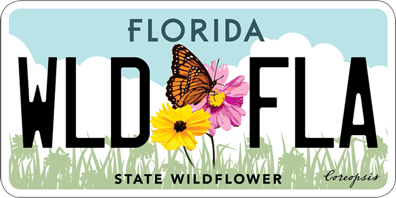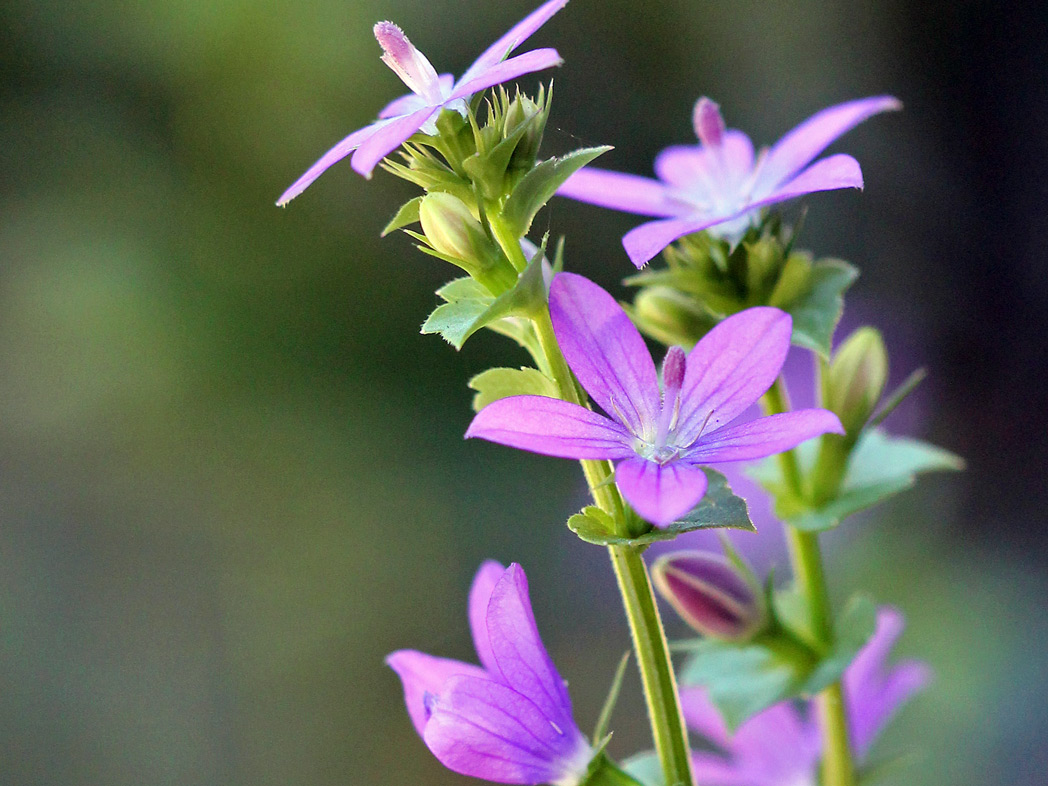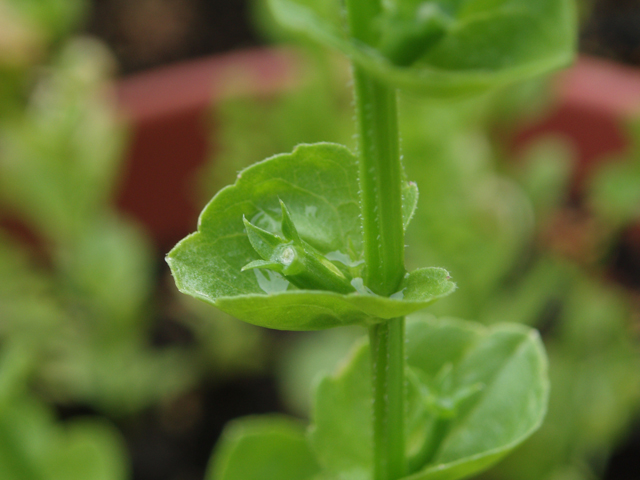Venus’ looking glass
Pictured above: Clasping Venus’ looking glass (Triodanis perfoliata) by Eleanor Dietrich. Click on terms for botanical definitions. View post as a PDF.
Clasping Venus’ looking-glass (Triodanis perfoliata) is an annual herbaceous wildflower. Its bluish-purple blooms are wheel- or bell-shaped, five-lobed and sessile, developing at the leaf axil. The petals are lined with a deeper purple. Flower centers are whitish. Not all flowers open, yet they still produce seed as they are self-pollinating. Leaves are alternately arranged, and shell- to heart-shaped with bases that clasp the stem. The toothed margins make the leaves look ruffled. Stems are stiff with ridges and tiny hairs. They are usually unbranched. Seeds develop in a capsule that bears three indentations or covered pores. When the seeds are mature, the tissue covering the pore rolls up to allow the seeds to disperse.
The common name, Venus’ looking glass, refers to the seeds, which are slightly flattened and said to resemble a hand mirror. The genus name, Triodanis, is from the Greek treis (three) and odous (tooth), referring to the three lobes of the calyx that surround those flowers that don’t bloom. The species name, perfoliata, refers to how the stem appears to pierce the leaves due to their tight clasping.
Clasping Venus’ looking glass typically flowers late winter through spring and even into fall. It occurs naturally along roadsides and in disturbed areas. It is pollinated by bees, flies and small butterflies and moths.
Family: Campanulaceae (Bellflower family)
Native range: Panhandle, north and central peninsula
To see where natural populations of clasping Venus’ looking-glass have been vouchered, visit florida.plantatlas.usf.edu.
Hardiness: Zones 8–9
Soil: Well-drained, sandy soils
Exposure: Full sun
Growth habit: 6–18 inches tall
Propagation: Seed
Garden tips: Clasping Venus’ looking glass will self-sow readily, so deadhead to prevent volunteer seedlings from germinating. To allow self-seeding to occur, be sure to allow seeds to mature before removing the spent plants.


